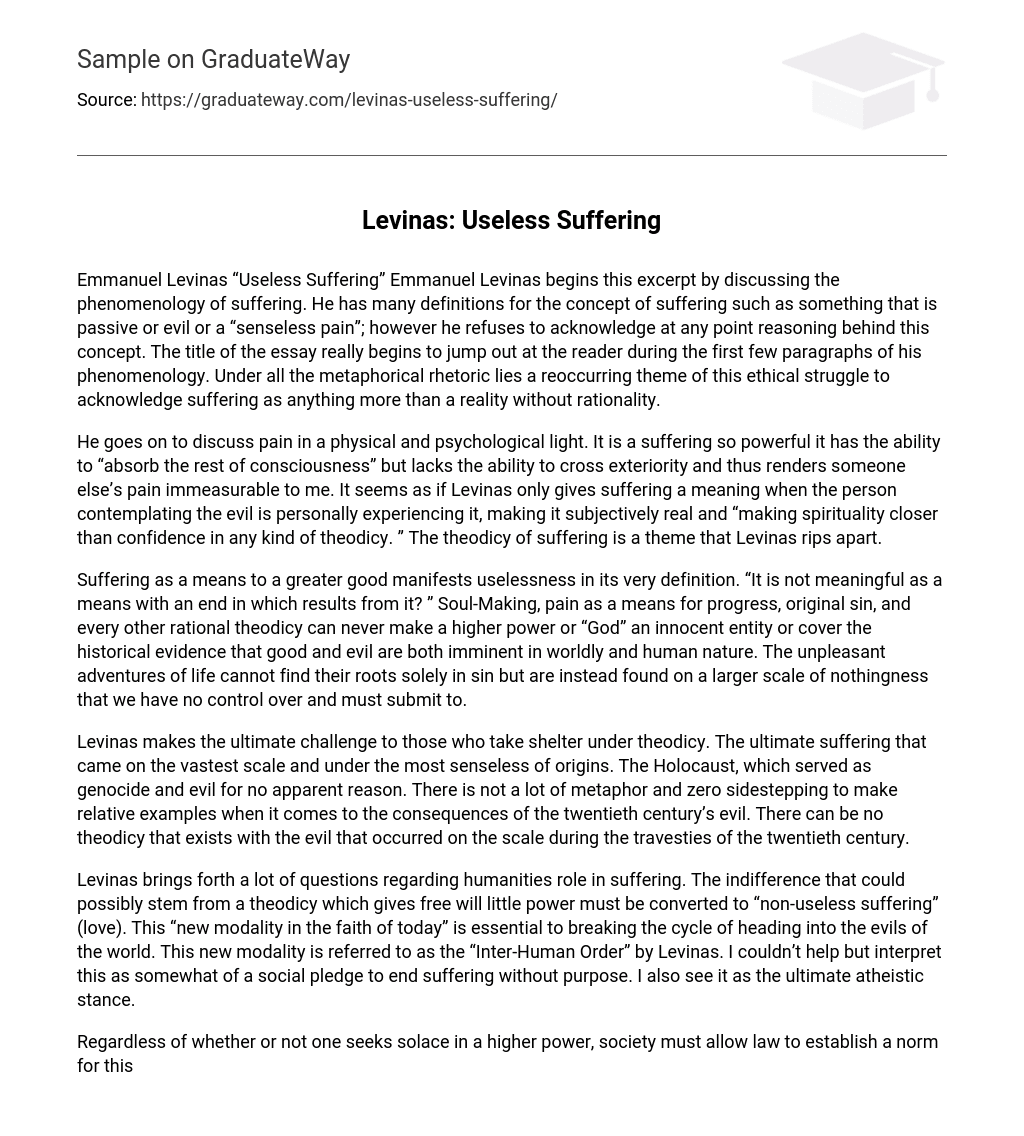Emmanuel Levinas “Useless Suffering” Emmanuel Levinas begins this excerpt by discussing the phenomenology of suffering. He has many definitions for the concept of suffering such as something that is passive or evil or a “senseless pain”; however he refuses to acknowledge at any point reasoning behind this concept. The title of the essay really begins to jump out at the reader during the first few paragraphs of his phenomenology. Under all the metaphorical rhetoric lies a reoccurring theme of this ethical struggle to acknowledge suffering as anything more than a reality without rationality.
He goes on to discuss pain in a physical and psychological light. It is a suffering so powerful it has the ability to “absorb the rest of consciousness” but lacks the ability to cross exteriority and thus renders someone else’s pain immeasurable to me. It seems as if Levinas only gives suffering a meaning when the person contemplating the evil is personally experiencing it, making it subjectively real and “making spirituality closer than confidence in any kind of theodicy. ” The theodicy of suffering is a theme that Levinas rips apart.
Suffering as a means to a greater good manifests uselessness in its very definition. “It is not meaningful as a means with an end in which results from it? ” Soul-Making, pain as a means for progress, original sin, and every other rational theodicy can never make a higher power or “God” an innocent entity or cover the historical evidence that good and evil are both imminent in worldly and human nature. The unpleasant adventures of life cannot find their roots solely in sin but are instead found on a larger scale of nothingness that we have no control over and must submit to.
Levinas makes the ultimate challenge to those who take shelter under theodicy. The ultimate suffering that came on the vastest scale and under the most senseless of origins. The Holocaust, which served as genocide and evil for no apparent reason. There is not a lot of metaphor and zero sidestepping to make relative examples when it comes to the consequences of the twentieth century’s evil. There can be no theodicy that exists with the evil that occurred on the scale during the travesties of the twentieth century.
Levinas brings forth a lot of questions regarding humanities role in suffering. The indifference that could possibly stem from a theodicy which gives free will little power must be converted to “non-useless suffering” (love). This “new modality in the faith of today” is essential to breaking the cycle of heading into the evils of the world. This new modality is referred to as the “Inter-Human Order” by Levinas. I couldn’t help but interpret this as somewhat of a social pledge to end suffering without purpose. I also see it as the ultimate atheistic stance.
Regardless of whether or not one seeks solace in a higher power, society must allow law to establish a norm for this behavior. The Inter-Human perspective is the responsibility for the other person to have “concern over their neighbor without expectations of reciprocity. ” The phenomenon of useless suffering will continue to subsist as long as suffering is seen in a selfish manner with disregard to the metaphysical existence of “the other”. You can’t help but be a bit thrown at certain points of this argument but while approaching the end it all seemed to tie up in a pretty clear cut way.





